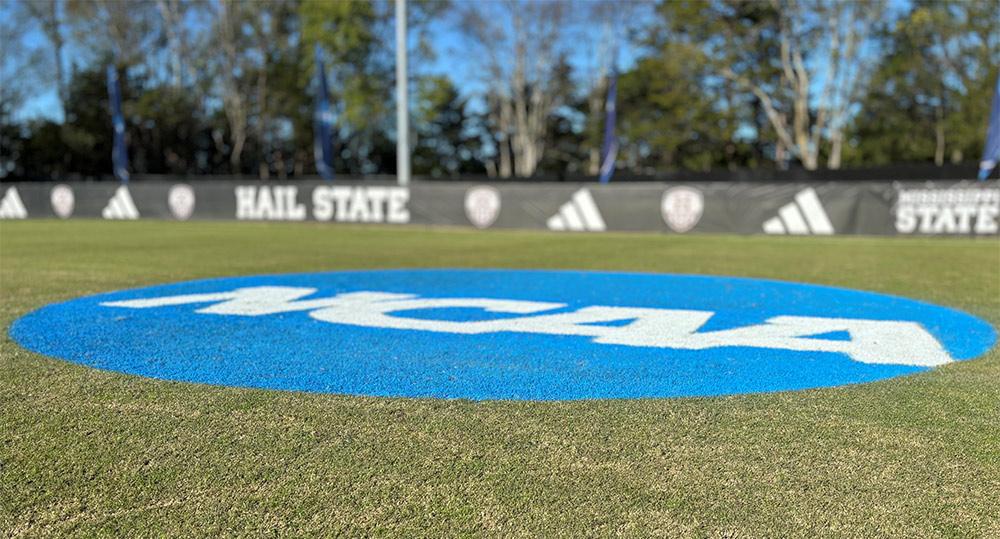Behind-the-scenes turf team prepares for NCAA Women’s Soccer Tournament at MSU
Contact: Mary Kathryn Kight
STARKVILLE, Miss.—As the No. 1 seed Mississippi State Women’s Soccer team gears up to defend its home turf in this weekend’s NCAA tournament, another team also has worked hard all season, ensuring the field is ready for the pivotal moment Saturday [Nov. 16] at 5 p.m.
“My goal is to make this grass as green as a soybean leaf,” said Brandon Hardin, MSU associate director of athletic grounds and 2006 graduate of the university’s golf and sports turf management program.
Reaching that goal requires constant maintenance. Hardin’s team, which also includes MSU turf management students, mows the field—better known in soccer as the pitch—daily at or below half an inch and utilizes a fertilizer program that is balanced using minimal amounts of organic and synthetic slow-release nitrogen monthly. Aeration and topdressing also are done monthly around the practice and game schedules.
“We want to be behind the scenes, out of sight, out of mind. Our staff works closely with coaches to ensure the field is ready without disrupting the athletes’ focus,” said Hardin.
But aesthetics are secondary to safety—a priority that fans may not consider in turfgrass management.
“At the end of the day, our major objective is athlete safety,” said Jay McCurdy, MSU Extension turfgrass specialist and associate professor in the Department of Plant and Soil Sciences. “A big part of what we do in turfgrass management is making sure the field is uniform—no holes, no divots. When players cut or turn, the surface needs to provide footing while allowing some give. A biomechanical failure in the athlete is far worse than any failure in the turf.”

Originally constructed in the 1990s, the MSU soccer field underwent a significant renovation in 2010 to address challenges posed by the native clay-heavy soil. The upgrade included a six-inch sand base over geotextile material, paired with a herringbone drainage system designed to handle heavy rainfall.
“Earlier this season, when we played right after a major storm, the surface was playable due to the way we keep it prepared and ready at all times,” Hardin said.
The field is covered with Tifway 419 Hybrid Bermuda Grass grown in Tupelo, overseeded each fall with perennial ryegrass. This combination provides a durable yet forgiving surface, critical for both athlete performance and safety. The grass’s unique characteristics, such as its ability to recover from wear and tear, ensure the field remains consistent and uniform, even under intense postseason play.
McCurdy explained that the type of turf often influences the choice of cleats.
“Equipment staff will consider what kind of grass the athletes are playing on—whether it’s natural or synthetic, warm season Bermuda grass or Bermuda grass that has been overseeded—and choose different shoe cleat lengths or even choose cleat arrangements based on the turfgrass,” McCurdy said.
Hosting the NCAA tournament requires more than just well-maintained grass. It’s a carefully choreographed effort involving field prep, paint drying schedules, and communication with coaching staff. With four teams practicing and playing on the field in one day, distributing wear and tear becomes a priority.
“Whether it’s preseason, midseason or postseason, we prepare the same way. But the excitement of hosting a tournament like this makes everything worth it,” Hardin said.
Learn more about MSU’s golf and sports turf management program at Golf & Sports Turf Management | Plant and Soil Sciences | Mississippi State University. Visit MSU Women’s Soccer online at https://hailstate.com/sports/womens-soccer.
Mississippi State University is taking care of what matters. Learn more at www.msstate.edu.